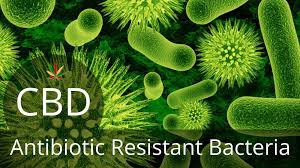
Breaking News
 Sunday FULL SHOW: Newly Released & Verified Epstein Files Confirm Globalists Engaged...
Sunday FULL SHOW: Newly Released & Verified Epstein Files Confirm Globalists Engaged...
 Fans Bash Bad Bunny's 'Boring' Super Bowl Halftime Show, Slam Spanish Language Performan
Fans Bash Bad Bunny's 'Boring' Super Bowl Halftime Show, Slam Spanish Language Performan
 Trump Admin Refuses To Comply With Immigration Court Order
Trump Admin Refuses To Comply With Immigration Court Order
 U.S. Government Takes Control of $400M in Bitcoin, Assets Tied to Helix Mixer
U.S. Government Takes Control of $400M in Bitcoin, Assets Tied to Helix Mixer
Top Tech News
 SpaceX Authorized to Increase High Speed Internet Download Speeds 5X Through 2026
SpaceX Authorized to Increase High Speed Internet Download Speeds 5X Through 2026
 Space AI is the Key to the Technological Singularity
Space AI is the Key to the Technological Singularity
 Velocitor X-1 eVTOL could be beating the traffic in just a year
Velocitor X-1 eVTOL could be beating the traffic in just a year
 Starlink smasher? China claims world's best high-powered microwave weapon
Starlink smasher? China claims world's best high-powered microwave weapon
 Wood scraps turn 'useless' desert sand into concrete
Wood scraps turn 'useless' desert sand into concrete
 Let's Do a Detailed Review of Zorin -- Is This Good for Ex-Windows Users?
Let's Do a Detailed Review of Zorin -- Is This Good for Ex-Windows Users?
 The World's First Sodium-Ion Battery EV Is A Winter Range Monster
The World's First Sodium-Ion Battery EV Is A Winter Range Monster
 China's CATL 5C Battery Breakthrough will Make Most Combustion Engine Vehicles OBSOLETE
China's CATL 5C Battery Breakthrough will Make Most Combustion Engine Vehicles OBSOLETE
 Study Shows Vaporizing E-Waste Makes it Easy to Recover Precious Metals at 13-Times Lower Costs
Study Shows Vaporizing E-Waste Makes it Easy to Recover Precious Metals at 13-Times Lower Costs
Is CBD the Answer to the Rise in Antibiotic-Resistant Bacteria Like MRSA?

As public health organizations issue dire warnings about the rising threat of antibiotic-resistant superbugs, a surprising hero may rush in just in time to save the day. A new study has found that cannabidiol (commonly known as CBD) is remarkably effective at killing a wide range of Gram-positive bacteria.
Antibiotics have saved millions of lives since their widespread use began many decades ago. Infections that were once a death sentence were easily treated with the medications.
Unfortunately, many antibiotics are now becoming ineffective because bacteria have become resistant to the drugs – they have mutated into "superbugs" that are becoming nearly impossible to treat.
Thankfully, CBD may offer a solution.
Before we talk about the antibiotic properties of CBD, here's a brief overview of the substance and how it works.
What is CBD and how does it work?
Cannabidiol, or CBD, is a non-intoxicating natural medicine that is derived from the Cannabis sativa plant.
CBD is a fascinating compound that has tremendous therapeutic value. It is one of over 100 compounds found in Cannabis sativa plants that belong to a class of ingredients called cannabinoids.
Cannabinoids are a diverse set of chemical compounds that bind to special receptors in the human body that make up what is known as the endocannabinoid system.
The endocannabinoid system is a biological system which plays many important roles in the human body. It is responsible for the physical and psychological effects of cannabis.
Cannabis sativa plants contain much more than cannabidiol: they are rich in phytotherapeutic agents, including Tetrahydrocannabinol (THC), terpenes, and phenolic compounds.
While people (and their animal companions) are finding CBD provides them with relief for a wide range of ailments including arthritis, chronic pain, gastrointestinal problems, and sleep troubles, one area in which CBD may become a true lifesaver is as a treatment for drug-resistant infections.

 Smart dust technology...
Smart dust technology...

